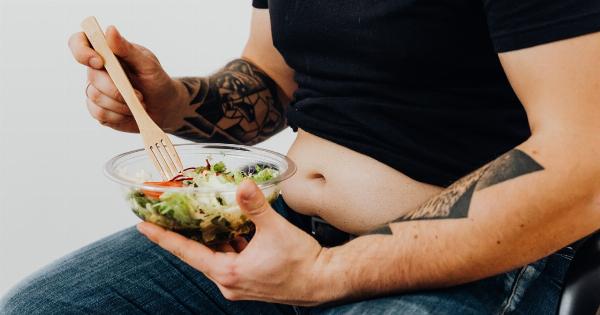Do you have a dog that seems to always be hungry and overeats? It can be frustrating to see your beloved pet struggling with weight gain or other health issues related to overeating.
In this article, we’ll provide tips for managing your dog’s overeating behavior.
Understanding the Causes of Overeating
There can be several reasons why a dog may overeat. It could be due to boredom, anxiety, or medical conditions such as diabetes or hypothyroidism. Another common cause of overeating is a lack of portion control or inconsistent feeding schedules.
Understanding the root cause(s) of your dog’s overeating behavior can help you address it effectively.
Establish a Consistent Feeding Schedule
One of the best ways to manage your dog’s overeating behavior is by establishing a consistent feeding schedule. This means feeding your dog at the same time(s) every day and not leaving food out all the time.
It’s recommended that adult dogs be fed twice a day, once in the morning and once in the evening. Puppies may require more frequent feedings.
Measure Food Portions
Did you know that many dog owners overfeed their pets without even realizing it? That’s because they may not be measuring their dog’s food portions.
Most dog food bags will have instructions on how much to feed based on your dog’s weight and age. Make sure to follow these guidelines and use a measuring cup to ensure that your dog is getting the right amount of food.
Avoid Free-Feeding
Free-feeding is when you leave a bowl of food out all day for your dog to graze on. This can lead to overeating and weight gain, as your dog may not have a sense of when to stop eating.
Instead, try feeding your dog at specific times and removing the bowl once they’ve finished eating. This will help your dog develop a healthier relationship with food.
Use Puzzle Feeders or Food Toys
Does your dog eat too quickly or seem bored with their food? You can try using puzzle feeders or food toys to make mealtime more engaging and challenging.
These types of toys require your dog to work for their food by using their senses and problem-solving skills. Not only will this help slow down their eating, but it can also provide mental stimulation and reduce boredom.
Eliminate Table Scraps and Treats
It’s easy to want to give your dog table scraps or treats to show affection or as a reward. However, these extra calories can add up quickly and contribute to overeating.
It’s best to limit table scraps and treats and opt for healthier alternatives, such as small pieces of fruit or vegetables.
Consult with Your Veterinarian
If your dog’s overeating behavior persists or you’re concerned about their health, it’s always best to consult with your veterinarian.
They can rule out any underlying medical conditions and provide guidance on the best ways to manage your dog’s diet and weight.
Be Patient and Consistent
Changing your dog’s eating habits can take time and patience. Consistency is key, so make sure to stick to a schedule and portion control.
It’s also important to remember that every dog is different and what works for one may not work for another. Be patient and keep an open mind as you work to manage your dog’s overeating behavior.
Conclusion
Managing your dog’s overeating behavior is essential for their overall health and well-being.
By establishing a consistent feeding schedule, measuring food portions, and eliminating table scraps and treats, you can help your dog develop healthier habits. If you have any concerns or questions, don’t hesitate to consult with your veterinarian for guidance.





























